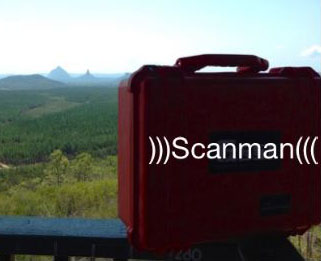Non-Destructive Concrete Testing Methods
In the construction industry, concrete is tested before construction starts for various reasons. There are underground utilities like cables, conduit, metallic and non-metallic pipes, and sewer lines that need to be identified before any drilling or cutting should begin. Concrete testing methods are of two types: destructive and non-destructive. One of the most common destructive testing methods is drilling of core samples. Usually a steel tube is used to drill a hole in the structure, which not only causes damage to the structure but also sometimes gives inaccurate results. Different corers are used for different types of materials but they are all unsafe and destructive methods of testing concrete structures.
In non-destructive testing methods, the most common type is the use of radar or radioactive waves to obtain information about subsurface features. While destructive testing methods are time consuming and require a lot of manpower, non-destructive methods are not only safe and hazard free but are also quite fast. GPR or ground penetrating radar systems are becoming increasingly popular in the construction industry because of their reliability. The internal conditions of an object can be identified by using GPR without causing damage to the object. Other non-destructive methods work in a similar fashion.
Just like electromagnetic waves, some non-destructive concrete testing tools make use of sound waves to obtain subsurface information or buried objects. These waves are reflected by imperfections in the structures including cracks, voids, leaks, and other defects. Modern tools come equipped with computer software which can be used to visualize the internal conditions using graphs and charts. Most methods take the thickness of concrete as a base measurement and then calculate the probability of a flaw based on some other parameters. Some of these non-destructive concrete scanning methods provide up to 90% accurate results.
In destructive testing, the structures have to be repaired after testing has been done. Both types of testing methods can be used to test new as well as old concrete structures. Other than GPR, visual inspection, half cell electrical potential method, penetration residence, radiographic testing, tomographic modeling, and impact echo testing are also common non-destructive methods. All these methods have their own typical applications and some of them are popularly used in the construction industry.
Ground penetrating radar and some other non-destructive concrete testing methods are suitable for almost all types of concrete including reinforced concrete, hardened concrete, and prestressed concrete. Normally testing methods are employed to test the durability and strength of a concrete structure before it can be cut or drilled. In addition to this, NDT methods can also be used to determine the location of reinforcing bars and underground wiring, piping, and ducting. Defects such as corrosion can also be detected using ground penetrating radar and other non-destructive concrete testing methods.







